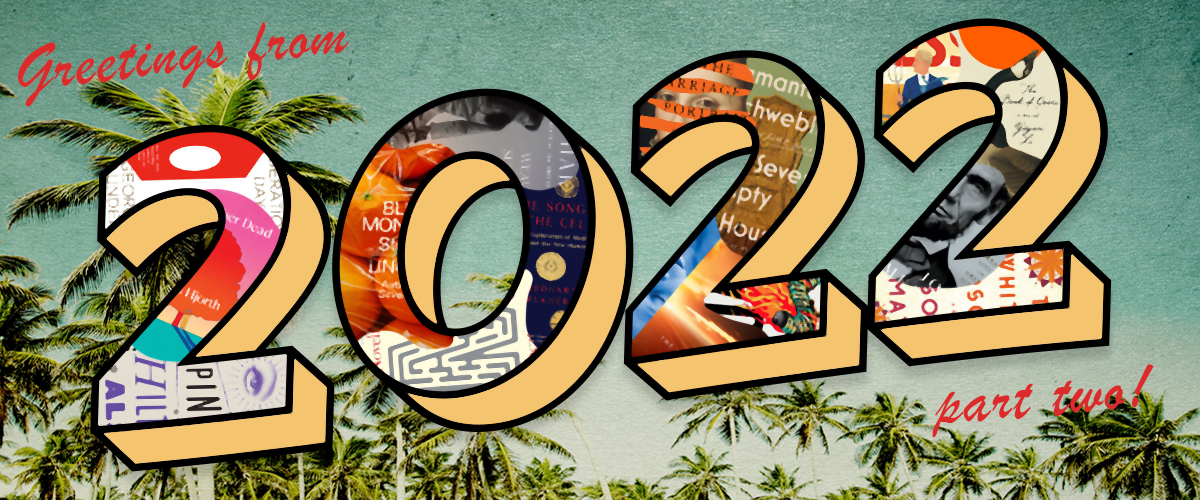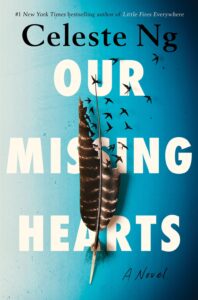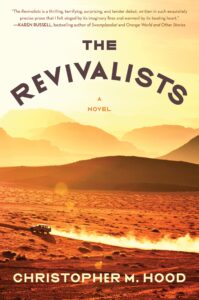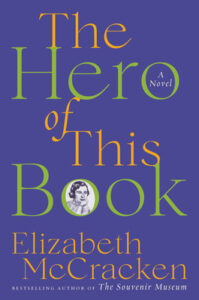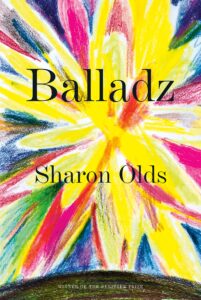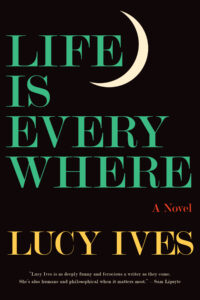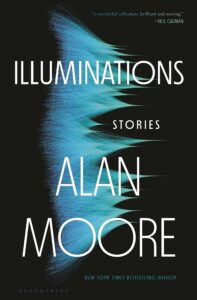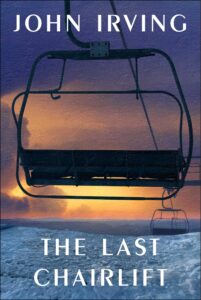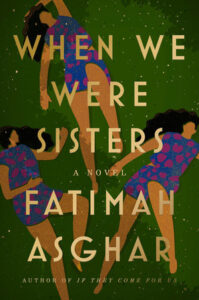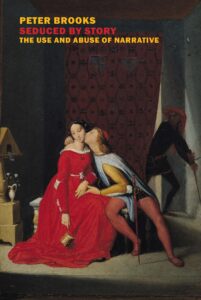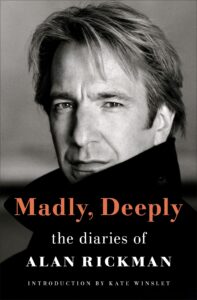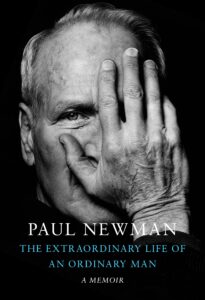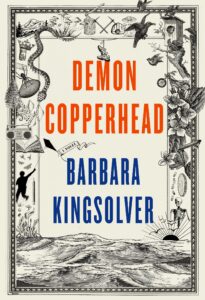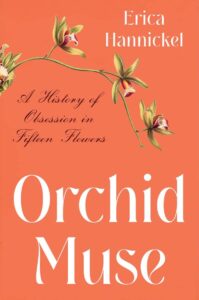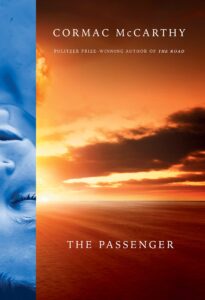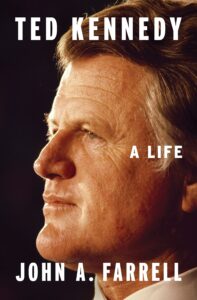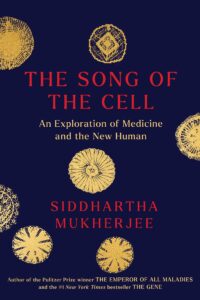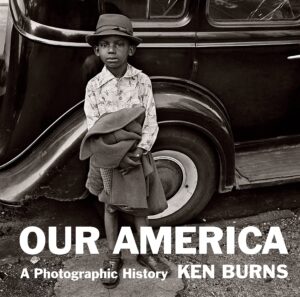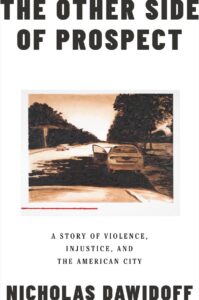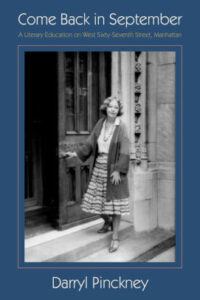OCTOBER
Celeste Ng, Our Missing Hearts
Penguin Press, October 4
In her first novel since the runaway hit Little Fires Everywhere, Celeste Ng ventures into (slightly) speculative fiction territory. Our Missing Hearts tells the story of 12-year-old Bird Gardner, who lives with his father in a near future governed by laws written to “preserve American culture.” Bird’s mother, a Chinese American poet whose work has been banned from libraries, left the family when he was nine. When a mysterious drawing spurs a quest to find her, Bird relies on an underground network of librarians and ancient folktales to guide him. Like Ng’s previous novels, this one promises to be thrillingly paced and deeply felt. –JG
Christopher M. Hood, The Revivalists
Harper, October 4
In Hood’s post-pandemic (Shark Flu, in this case) novel, two survivors are just beginning to rebuild when they discover that their daughter has joined a cult clear across the country—and they drop everything to travel the dying nation to save her. Karen Russell called it “a thrilling, terrifying, surprising, and tender debut,” and Matthew Thomas wrote that “it’s hard to imagine a story more necessary now than one about humanity somehow persisting in the face of civilization’s collapse.” Can’t disagree with that; very much looking forward to this one. –ET
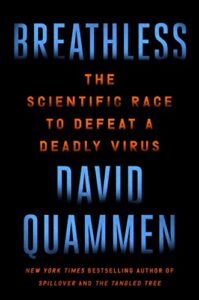
David Quammen, Breathless: The Scientific Race to Defeat a Deadly Virus
Simon & Schuster October 4
There have been a lot of Covid books considering the pandemic hasn’t so much gone away as adapted itself into what we now think of as daily life. But if there’s anyone who could legitimately write scientific history as it’s happening it’s David Quammen, the highly honored, prolific writer of science-inflected nonfiction (I highly recommend The Tangled Tree). With Breathless, Quammen puts on his explainer hat to take us through the rise of SARS-CoV-2, unpacking its origins, outlining its evolutions, and providing a blueprint for what comes next in our perennial battle with infectious disease. –JD
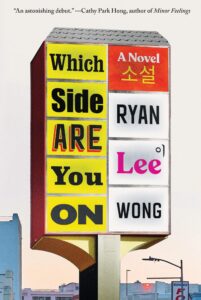
Ryan Lee Wong, Which Side Are You On
Catapult, October 4
What does it look like to devote your life to activism? How can you be a good, authentic ally to others? How can you lead a happy life when your life’s work is so wrapped up in trauma and systemic oppression? These are some of the big and timely questions that carry us through Ryan Lee Wong’s debut. Which Side Are You On centers on Reed, a 21-year-old burgeoning community organizer, who wants to dedicate himself fully to the Black Lives Matter movement after an Asian American police officer kills a Black man. His mother (the former leader of a Korean-Black coalition) acts as a guiding light, forcing him to think through these larger questions. You’ll feel like you’re right there in Los Angeles, a fly on the wall of these important conversations. But this is not a strictly somber novel by any means! It’s a wonderful balancing act, tackling serious topics with humor and heart. –KY
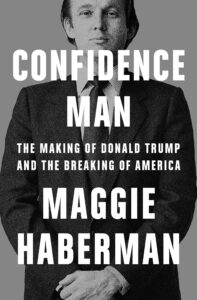
Maggie Haberman, Confidence Man: The Making of Donald Trump and the Breaking of America
Penguin Press, October 4
Maggie Haberman arguably knows more about Donald Trump than almost anyone else; having followed him through his early days in New York to the presidency and, now, his post-presidency, she’s written Confidence Man, which looks at his formation in each of those stages, detailing the circumstances and relationships that brought him there. Billed by Penguin Press as the “definitive account of one of the most norms-shattering and consequential eras in American political history,” I’m looking forward to seeing what the book contributes to Haberman’s extensive reporting and what her experience with Trump has shown her about the inner workings of the political system. –CS
Elizabeth McCracken, The Hero of This Book
Ecco, October 4
Elizabeth McCracken’s latest novel has at its center the relationship between the narrator and her mother, who recently died, following the reflections of the narrator as she visits London. McCracken’s writing is always delightful, and I have no doubt that this story of grief will offer plenty of light moments along with a bittersweet look at the complicated love between a mother and daughter. –CS
Sharon Olds, Balladz
Knopf, October 4
In comparison to the stark black and white covers of Odes, then Arias, the cover of Balladz is an explosion of color and joy. Along with that color and joy come the typical Oldsian themes: interrogation of self and others, one’s parents, one’s childhood, one’s crutches, one’s downfalls. Sharon Olds has never shied away from the hard conversations: she asks for a lot from the people in her life, and she asks for a lot from herself. She does not work with blame—she looks directly at the wound and that is its own healing. Balladz includes quarantine poems, born from that period of intense isolation and self-searching, that ruminate on mortality, age, childhood, all bundled together in both sorrow and joy. –JH
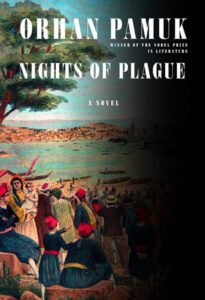
Orhan Pamuk, Nights of Plague
Knopf, October 4
I would read anything by Orhan Pamuk, and this upcoming novel by him sounds especially fascinating: a sweeping historical epic, set on the fictional island of Mingheria in the Ottoman Empire circa 1900, where a plague begins to spread and a mysterious crime occurs. It seems sure to be an absorbing story with plenty of (unfortunate) relevance for the present day. –CS
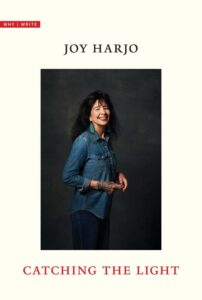
Joy Harjo, Catching the Light (Why I Write)
Yale University Press, October 4
I’m not sure America deserves Joy Harjo. As a poet and an activist she has led a model life for those of us who understand that art does more than merely distract or entertain, that it can in fact be a delivery system for dreams of a more just world. In Catching the Light, Harjo looks back at 50 years of writing, how it has shaped her life and led her to places of discovery, community, and joy. –JD
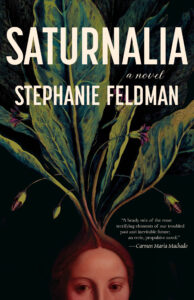
Stephanie Feldman, Saturnalia
Unnamed Press, October 4
This novel has everything I like: elite societies with arcane rituals, visions of the cracked future, wild parties, dark secrets, outsiders, a thrum of magic underneath. Carmen Maria Machado called it “a heady mix of the most terrifying elements of our troubled past and inevitable future; an eerie, propulsive novel”—as if I weren’t going to read it already. –ET

Thomas E. Ricks, Waging a Good War: A Military History of the Civil Rights Movement, 1954-1968
FSG, October 4
It’s always worth noting when a Pulitzer Prize-winning historian comes out with a new book, but Thomas E. Ricks latest feels eerily, disquietingly timely. In delving into the mid-century struggle for civil rights, Ricks has chosen to focus on the strategies of various movements for Black liberation and equality, mapping them over traditional military approaches to large-scale conflict: what worked, what didn’t, and why. Handy information to have as the fight for civil rights in America is far from over. –JD
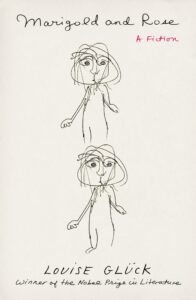
Louise Glück, Marigold and Rose: A Fiction
FSG, October 4
After more than a dozen collections of poetry, Louise Glück is giving us Marigold and Rose, the fictional story of two twins in their first year of being alive. If that premise alone doesn’t immediately set you on fire, I don’t know what to tell you; I want to walk with Glück into that unknowable world. –CS
Lucy Ives, Life is Everywhere
Graywolf, October 4
When we meet Erin, her life is sort of a mess. Her husband has left her. There’s some tension between her and her parents. And to top it off: she’s locked out of her apartment! We’ve all been there. It’s just one of those days, but Erin manages to turn this terrible evening into one of incredible self-discovery. At a loss for what to do next, she hunkers down at her grad school library and starts sifting through two manuscripts she’s been working on. I’m a big fan of the up-all-night, digressive kind of storytelling. And you just know that the author who brought us Cosmogony is going to take us through some incredible tangents. –KY
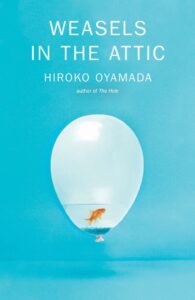
Hiroko Oyamada, tr. David Boyd, Weasels in the Attic
New Directions, October 4
If you haven’t read Hiroko Oyamada’s The Hole, you still have time before her new collection comes out! But consider yourself warned: it’s not for the faint of heart. There is an uncanny and chilling quality to her writing that I’m sure will carry into her new collection, which seems to burst with creatures: exotic fish, the eponymous weasels. As in her other novels, Hiroko Oyamada is a master at backing her characters into corners. Through David Boyd’s wonderful translation (he also brings us Mieko Kawakami in English!), she wields the surreal in surprising ways. –KY
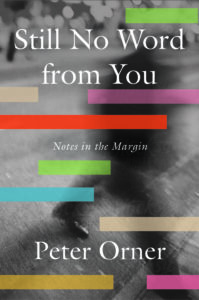
Peter Orner, Still No Word from You: Notes in the Margin
Catapult, October 11
Peter Orner is a writer’s writer—not exactly a household name, but those who know, know. Since all writers are also readers, his fans should particularly appreciate this volume of essays and other musings on the writing life, the reading life, and the living life, which are all, of course, inseparable. I am very much looking forward to living inside Orner’s brain (and bookshelf) for a while. –ET
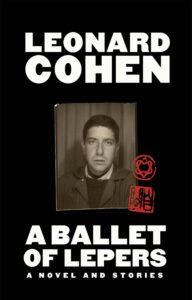
Leonard Cohen, A Ballet of Lepers: A Novel and Stories
Grove Press, October 11
When you hear the name “Leonard Cohen,” you probably automatically sink into the warmth and heartbreak of “Hallelujah.” (The first time I heard that song was, admittedly, while watching Shrek as a kid, but it rattled me, even then!) His writing has always had a magical quality, and it is a pleasure to see his early work, to watch him grapple with the questions that continued to follow him his whole career. Fans of Leonard Cohen should rejoice, for A Ballet of Lepers is an unexpected gift. This never-before-published novel and stories (and a radio-play!) read like the beloved singer-songwriter is reaching out to us and holding us still. –KY
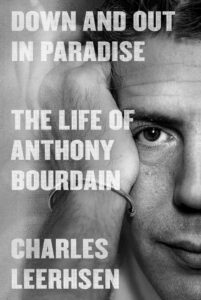
Charles Leerhsen, Down and Out in Paradise: The Life of Anthony Bourdain
Simon & Schuster, October 11
When we lose wonderful, thoughtful, unforgettable minds like Anthony Bourdain, the only consolation can be that they’re not around to see how bad things have gotten. But wouldn’t it be great to have Bourdain’s take on the Capitol Riots? Or to bathe in his incandescent rage over Roe v. Wade? Though I’m wary of any “definitely unauthorized” biography, I’m curious to read more about what made the legendary chef-cum-writer tick. –JD
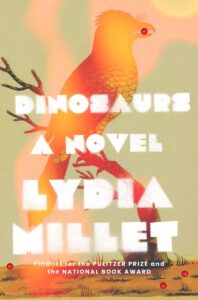
Lydia Millet, Dinosaurs
W.W. Norton, October 11
Lydia Millet’s follow-up to 2020’s excellent A Children’s Bible is is a realist novel, but it’s also a Millet novel, and so the realism is shinier than usual. You have an accidental millionaire who walks from New York to Arizona, a house with one wall made of entirely of glass, a castle next door (where the millionaire lives), a lot of beguiling wildlife, a Friendly Man, an outrageous request, and a nighttime confrontation in which one party is dressed as a bat. At first it’s hard to see where it’s all going, but in the end, it adds up to more than the sum of its parts: a charming little gem of a book, with implications that will stick with you for some time. –ET
Alan Moore, Illuminations: Stories
Bloomsbury, October 11
Love Watchmen? And V for Vendetta? Hungry for… Moore? (Sorry.) Alan Moore is coming out with his first story collection that is definitely going to be every bit as weird and supernatural as the work we know and love him for. The four horsemen of the apocalypse, ghosts, sorcerers in a brothel—his imagination knows no bounds. –KY
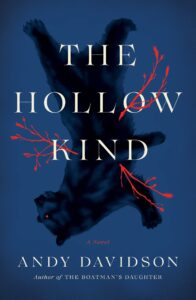
Andy Davidson, The Hollow Kind
MCD, October 11
A creaky old family mansion, a blood lineage, and the weight of ancestors’ wrongdoing—who could ask for more in a ghost story? But there is more, and then some, in The Hollow Kind. Nellie Gardner needs to escape from her abusive marriage, and when she finds out that her grandfather willed her the family estate, and she and her 11-year-old son immediately flee to their new home. It doesn’t take long for them to realize they are in a different kind of danger on the property: something is at work in the land, and in the house, a corrupted soul, an ancient hunger for blood, for evil. The Hollow Kind is more than a ghost story: it is a reckoning with the fact of money, land, power, and the darkness that looms in family history. –JH
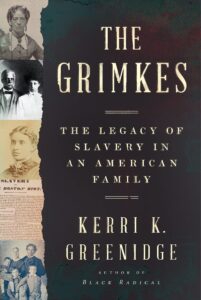
Kerri K. Greenidge, The Grimkes: The Legacy of Slavery in an American Family
Liveright, October 11
Sarah and Angelina Grimke were antislavery crusaders, remembered and celebrated for leaving their lives as slave-owners on a plantation in South Carolina to work towards abolition in the North. But Kerri K. Greenidge’s counternarrative focuses on the Grimke’s Black relatives—the offspring of their brother and Nancy Weston, one of the enslaved people he owned. These women had full, complex lives, reimagining “Blackness and womanhood in terms far more radical than their white relatives would have allowed.” An important narrative history, which, like Greenidge’s prize-winning biography of William Monroe Trotter, recontextualizes the roots of Black America. –EF
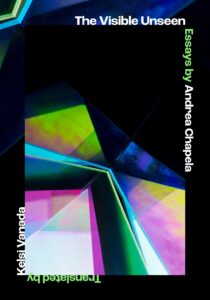
Andrea Chapela, tr. Kelsi Vanada, The Visible Unseen
Restless Books, October 11
Andrea Chapela has degrees in chemistry and creative writing, and she melds the two in this fascinating essay collection that challenges the “cultural divide between arts and science.” Both a scientific history of light and a personal exploration of self-image, The Visible Unseen is an exciting, innovative project from one of Granta’s Best Young Spanish-Language Novelists. –ES
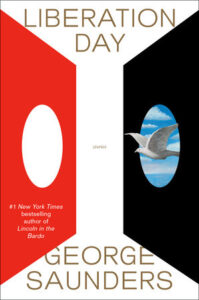
George Saunders, Liberation Day
Random House, October 18
George Saunders is only getting more George Saunders-y in his latest collection of stories, his first since 2013’s Tenth of December. These nine stories, five of which were previously published in The New Yorker, are playful, inventive, and sneakily affecting as ever. –ET
John Irving, The Last Chairlift
Simon & Schuster, October 18
It’s been well over a decade since I picked up a book by John Irving—whose brilliant early novels The World According to Garp (1978), The Hotel New Hampshire (1981), and The Cider House Rules (1985) were some of my favorites way back when—so I think it’s high time I squeezed myself into the old wrestling unitard and got back in the Irving game. The 80-year-old Canadian’s latest, billed as a ghost story and a love story, is about a man in search of answers about his origins who makes a pilgrimage to the Aspen hotel where he was conceived. –DS
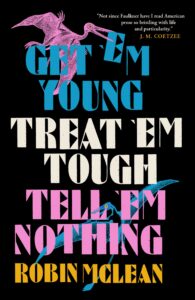
Robin McLean, Get ’em Young, Treat ’em Tough, Tell ’em Nothing
And Other Stories, October 18
This collection from the author of Pity the Beast is already eliciting comparisons to Denis Johnson and Flannery O’Connor. “These stories, they churn and turn with ferocious pace and a brute subject-verb force,” writes Chris Bachelder. “McLean is a writer of pure conviction, unafraid of risk, unconcerned with convention, objective but deeply humane, alive to wonder and strangeness.” I can’t wait to get my hands on this. –ET
Fatimah Asghar, When We Were Sisters
One World, October 18
I’ve loved Fatimah Asghar’s work for years, especially her debut poetry collection, If They Come for Us (though she also co-created the amazing web series Brown Girls, which is worth checking out). Now, her first work of fiction, When We Were Sisters, focuses on three siblings who take care of one another after the death of their parents. Coming from a storyteller who is gifted in so many areas, this book promises to be an exciting project. –CS
Peter Brooks, Seduced by Story: The Use and Abuse of Narrative
NYRB, October 18
From scholar and critic Peter Brooks, author of Reading for the Plot, a new book about everyone’s favorite thing: the story. As Brooks writes, “there’s nothing in the world more powerful than a good story. Nothing can stop it. Nothing can defeat it.” (As if we haven’t learned that all too well recently). For writers, readers, and citizens of the story-addled world. –ET
Alan Rickman, Madly, Deeply: The Diaries of Alan Rickman
Henry Holt, October 18
If Alan Rickman and his magnificent voice ever turned in a bad performance, I haven’t seen it; nor, for that matter, do I wish to see it. Rickman, who died of pancreatic cancer in 2016, had a legit claim to the mantle of King of the Movie Villains—having masticated the screen with aplomb in his portrayals of Hans Gruber, the Sheriff of Nottingham, Severus Snape, Judge Turpin, and Rasputin—but he was also a RADA-trained, Tony-nominated stage actor, as well as a lifelong political activist and humanitarian. These diaries, a 25-year passion project for Rickman, promise to “invite readers backstage and into his life.” –DS
Paul Newman, The Extraordinary Life of an Ordinary Man: A Memoir
Knopf, October 18
The late, great Paul Newman—iconic movie star, consummate wife guy, and creator of cookies and salad dressings that are both altruistic and delicious—began work on his memoir more than 30 years ago. The project started as an oral history project put together by Newman and his closest friend, screenwriter Stewart Stern, and the book was culled from thousands of pages of transcripts from the resulting interview. It promises to be a fascinating look at the life of—with apologies to the book’s modest title—and extraordinary man. –JG
Manuel Muñoz, The Consequences
Graywolf, October 18
The first short story collection in fifteen years from three-time PEN/O. Henry Award winner Muñoz whom Sandra Cisneros has called “a great American writer who sees with his heart―as great as Juan Rulfo in writing about the poor.” The stories in The Consequences are mostly set in the 1980s in the small towns of California’s Central Valley and vividly depict the lives and struggles of Mexican and Mexican American farm workers and their families. –DS
Barbara Kingsolver, Demon Copperhead
Harper, October 18
The latest novel from the author of The Bean Trees and Unsheltered offers a modern take on Charles Dickens’ David Copperfield. The Dickens classic is a Victorian story of abandonment and poverty, and the long-ranging ramifications on the children who must grow up too soon. Kingsolver takes these themes (and Dickens’ plot structure) and superimposes them on current-day southern Appalachia: the main character is born to a teenaged single mother in a trailer in the mountains, and must contend with the lot he was given in life. Poverty, hunger, foster care, abuse, and discipline are all facts of his young existence, as he tries to carve a place for himself in a world that’s all but forgotten about him. –JH
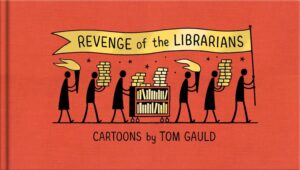
Tom Gauld, Revenge of the Librarians
Drawn & Quarterly, October 18
Everybody loves Tom Gauld. Even if you don’t recognize the name, I guarantee you’ve come across one of his New Yorker covers or weekly Guardian strips. You may already be a superfan of the bookish, deadpan Scottish cartoonist—whose previous books include Baking with Kafka, Mooncop, Goliath, and You’re All Just Jealous of My Jetpack—and are at this moment indoctrinating your progeny into the Church of Gauld by reading them his delightful 2021 children’s story, The Little Wooden Robot and the Log Princess. Either way, this new collection of literary cartoons (tagline: ‘Confront the specter of failure, the wraith of social media, and other supernatural enemies of the author’) is not to be missed. –DS
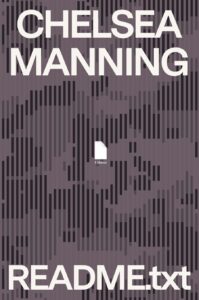
Chelsea Manning, README.txt: A Memoir
FSG, October 18
This fall, FSG is publishing a memoir by Chelsea Manning, the US Army intelligence analyst who famously announced her gender identity and began transitioning after she was convicted of leaking sensitive documents in 2011, and whose sentence was commuted by President Obama in 2017. According to the publisher, in the book “Manning recounts how her pleas for increased institutional transparency and government accountability took place alongside a fight to defend her rights as a trans woman. She reveals her challenging childhood, her struggles as an adolescent, what led her to join the military, and the fierce pride she took in her work. We also learn the details of how and why she made the decision to send classified military documents to WikiLeaks. This powerful, observant memoir will stand as one of the definitive testaments of the digital age.” –ET
Erica Hannickel, Orchid Muse: A History of Obsession in Fifteen Flowers
W.W. Norton, October 18
Have you ever tried to keep an orchid alive? My father, who has grown orchids easily in apartments and houses all over Brooklyn, has masochistically gifted me many plants over the years and after one beautiful, strange bloom they tend to die or refuse to flower until years later, when he moves them six inches to the left on my windowsill and they bloom again. So I’m excited to read this survey of the plant that tortures many home-botanists—following plant hunters, royalty like Empress Eugenie and Queen Victoria, and artists like Frida Kahlo, and Margaret Mee. A kaleidoscopic look at orchidomania, including tips from home-grower Hannickel on how to keep them alive. (NB: The ice cube trick does not work!) –EF
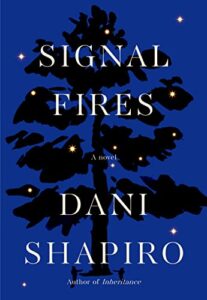
Dani Shapiro, Signal Fires
Knopf, October 18
According to EW, the story behind Dani Shapiro’s first novel in 15 years is one that should give hope to those of us with discarded manuscripts: on a cleaning spree in the early days of quarantine, Shapiro rediscovered the scrapped novel and returned to it with gusto. What we know thus far is it takes place for a group of characters across three points in time: Y2K, December 2010, and 2020—though it’s decidedly not a pandemic novel. Even if it were, I’d still be looking forward to it. –ES
Cormac McCarthy, The Passenger
Knopf, October 25
As we learned earlier this year, a full sixteen years after publishing The Road, Cormac McCarthy has not one but two new novels for you this season. They are sibling books that tell sibling stories, in this case Bobby and Alicia Western, the children of one of the inventors of the atom bomb. The Passenger, set in 1980, focuses on Bobby, “a salvage diver, haunted by loss, afraid of the watery deep, pursued for a conspiracy beyond his understanding, and longing for a death he cannot reconcile with God.” When Bobby explores the wreckage of a crashed jet and discovers that one of the passengers is missing, he gets drawn into a high-stakes mystery. According to The New York Times, both The Passenger and its sister book, Stella Maris, mark something of an evolution for McCarthy—in them, “he tackles more cerebral subjects: the history of math and physics, the nature of reality and consciousness, whether religion and science can coexist, and the relationship between genius and madness.” –ET
John A. Farrell, Ted Kennedy: A Life
Penguin Press, October 25
John A. Farrell’s 2017 biography of Richard Nixon, Richard Nixon: The Life, was one of the most critically acclaimed presidential biographies of the 21st century (not to mention a Pulitzer Prize finalist and PEN Award-winner). Even more significantly, Farrell unearthed new evidence which confirmed that Nixon sabotaged Vietnam peace talks on the eve of the 1968 election. Has he excavated something similarly sensational in his research for Ted Kennedy: A Life (which promises to “do full justice to this famously epic and turbulent life of almost unimaginable tragedy and triumph”)? I for one am eager to find out. –DS
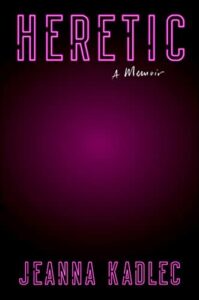
Jeanna Kadlec, Heretic: A Memoir
Harper, October 25
Jeanna Kadlec’s memoir—about leaving her religious community and a heterosexual marriage, and coming into her own as a queer person and ex-evangelical—is also a critique of what evangelical Christianity has done to our culture, and the harm it has done to individuals, as it has infiltrated the everyday flow of life and politics. In so generously offering her own experience with these issues, Kadlec is inviting us to re-examine our own lives and reject anything that would restrict us from living as our full selves in favor of a joyful, open, freer path. I’ve loved Kadlec’s work for a long time—she writes with the bold, clear voice of someone who has been there and back, and has now settled in to tell you the real deal—and I couldn’t be more excited to hear more from her personally, especially on these important, timely issues. –CS
Siddhartha Mukherjee, The Song of the Cell: An Exploration of Medicine and the New Human
Scribner, October 25
Siddartha Mukherjee won a Pulitzer Prize for The Emperor of All Maladies, his 2010 “biography of cancer,” and has now set his sights on that basic building block of all life, the cell. Beginning with its discovery in the 1600s Mukherjee traces our ever-evolving understanding of the human cell, from our ability to save a life to our attempts to create a new one in a laboratory (but did we ever stop to ask if we should?). –JD
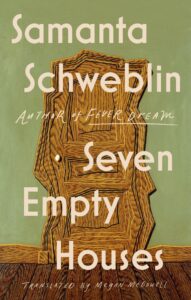
Samanta Schweblin, tr. Megan McDowell, Seven Empty Houses: Stories
Riverhead, October 25
Samanta Schweblin stories! I repeat: Samanta Schweblin stories! Having developed somewhat of a cult following with her surreal, unsettling books Fever Dream, Mouthful of Birds, and my personal favorite, Little Eyes, Schweblin’s latest in translation looks to be just as uniquely satisfying: seven tales of seven houses, each haunted in their own ways. October reading at its finest. –ES
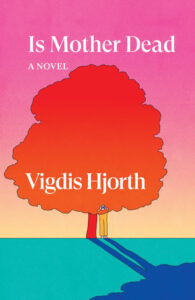
Vigdis Hjorth, Is Mother Dead
Verso Books, October 25
In 2019, Vigdis Hjorth’s novel Will and Testament was a bit of a sensation; a propulsive novel about family secrets and inheritance, further complicated by abuse—and the book’s autobiographical elements which made it a controversial literary sensation (Hjorth’s sister even wrote her own novel in response.) In Is Mother Dead, Hjorth returns to similar themes of family and estrangement. Johanna, a middle-aged artist, returns to Oslo for a retrospective of her work. She attempts to reconnect with her mother, but she doesn’t pick up the phone. Johanna continues to call and text her, fixating on reaching her despite surfacing memories of an unhappy childhood. She continues to stalk her mother—hiding out in her mother’s building, following her, and going through her trash—resulting in a memorable story of surveillance and psychological torment. –EF
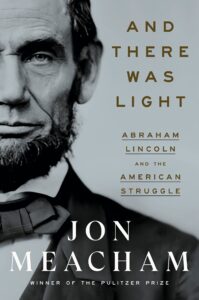
Jon Meacham, And There Was Light: Abraham Lincoln and the American Struggle
Random House, October 25
From the Pulitzer Prize–winning biographer of Andrew Jackson and Thomas Jefferson, a complex portrait of Honest Abe. “So much more than another account of Abraham Lincoln’s life, Jon Meacham’s profound new biography dives into Lincoln’s very soul, and the result is one of the most compelling and absorbing portraits ever crafted,” writes Harold Holzer. “This is a book of such high drama and deep emotion that it instantly takes its place at the forefront of the Lincoln literature.” Coincidentally, this year marks 100 years since the dedication of the Lincoln Memorial, and still we are fascinated by its subject. –ET
Ken Burns, Our America: A Photographic History
Knopf, October 25
Ken Burns, the filmmaker and documentarian who has made moving depictions of our country and subcultures such as The Civil War, The Central Park Five, and Country Music, is now publishing his first photo book. Our America is compiled of the photographs that, for Burns, sum up the vast and multifaceted heart and soul of our country. Chronicling America from 1839 to 2019, these photographs are both well-known and obscure, faces of celebrities and faces of laypeople, stunning images of landscapes and national parks alongside deserted towns and scenes of destruction. Just as arresting and poignant as his films can be, Burns has gathered a striking collection that depicts America in all its glory and grimness. –JH
Nicholas Dawidoff, The Other Side of Prospect: A Story of Violence, Injustice, and the American City
W.W. Norton, October 18
Unjust incarceration, glaring iniquity, life-shattering gun violence… Nicholas Dawidoff’s The Other Side of Prospect is just about the most American story one could tell in the year 2022. Back in 2006, a 16-year-old New Haven teen named Bobby was convicted for the shooting death of Pete Fields, and was sentenced to 38 years in prison. Though eventually exonerated the story of Bobby’s unjust incarceration is both sadly common and starkly illustrative of the broken promises of the American dream—and the racism that underlies it. –JD
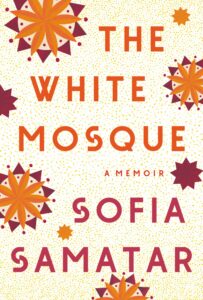
Sofia Samatar, The White Mosque
Catapult, October 25
How does history, with all its strange twists and turns, shape personal identity? The daughter of a Swiss-Mennonite and a Somali-Muslim, Sofia Samatar muses on this question while traveling to Uzbekistan to unearth the forgotten story of “The White Mosque,” a German-speaking Mennonite village that relocated from Russia to Central Asia for the return of Christ. I love a memoir-meets-journalistic-investigation (meets peculiar-slice-of-history), so this one’s high on my list. –ES
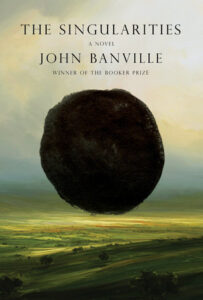
John Banville, The Singularities
Knopf, October 25
The latest from the prolific Booker Prize-winner will be particularly gratifying to longtime fans, who may recognize a character or two in this “playful, multilayered novel of nostalgia, life and death, and quantum theory.” –ET
Darryl Pinckney, Come Back in September: A Literary Education on West Sixty-Seventh Street, Manhattan
FSG, October 25
This might be the book I’m most excited about in 2022. From the description: “Critic and writer Darryl Pinckney recalls his friendship and apprenticeship with Elizabeth Hardwick and Barbara Epstein and the introduction they offered him to the New York literary world.” If you don’t immediately understand why that sounds amazing, maybe this isn’t the website for you. –JD

